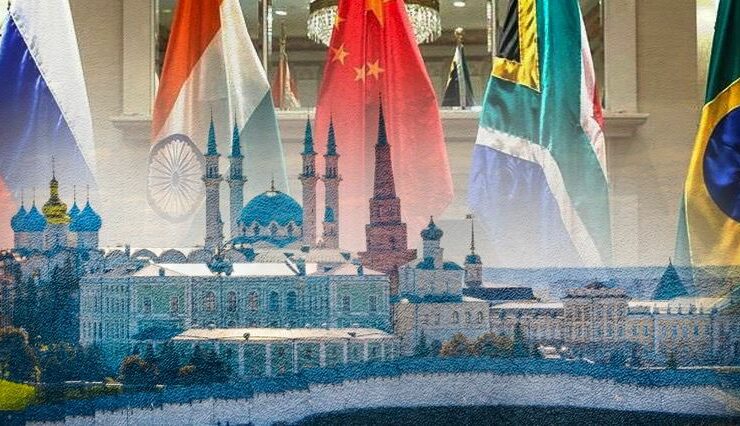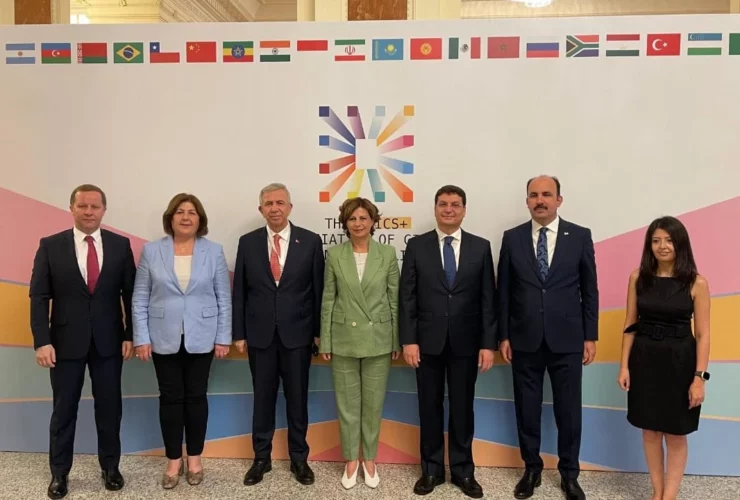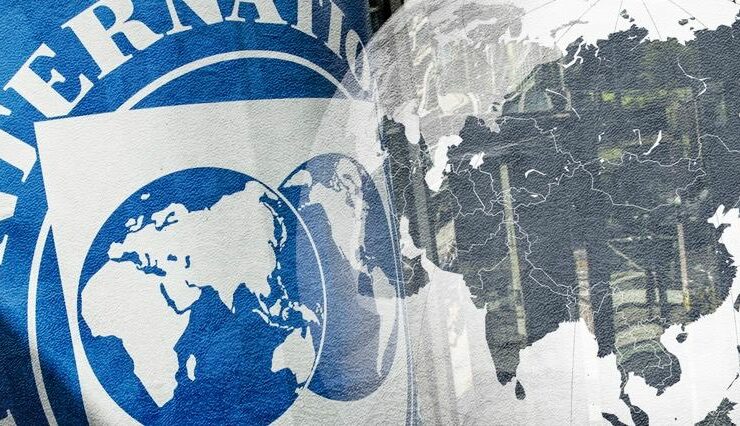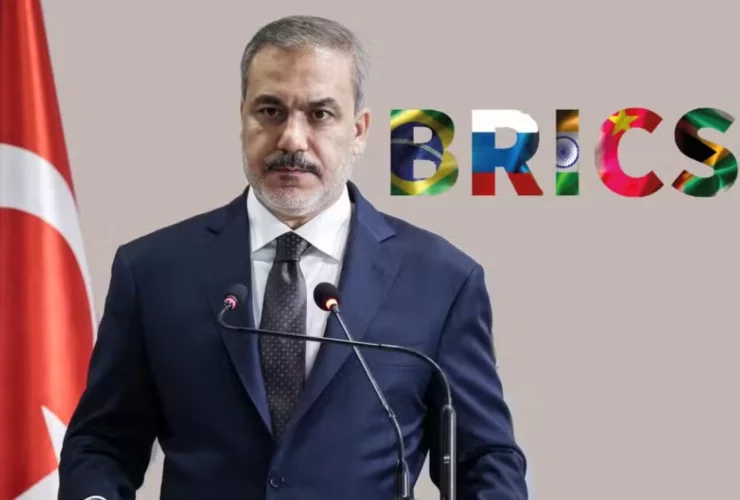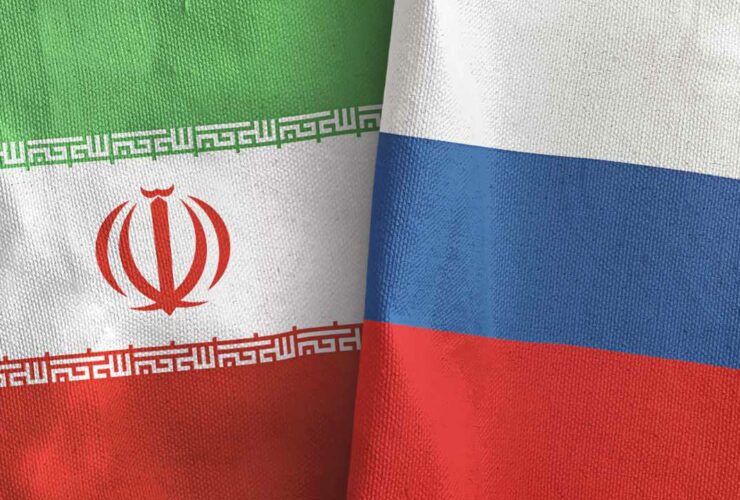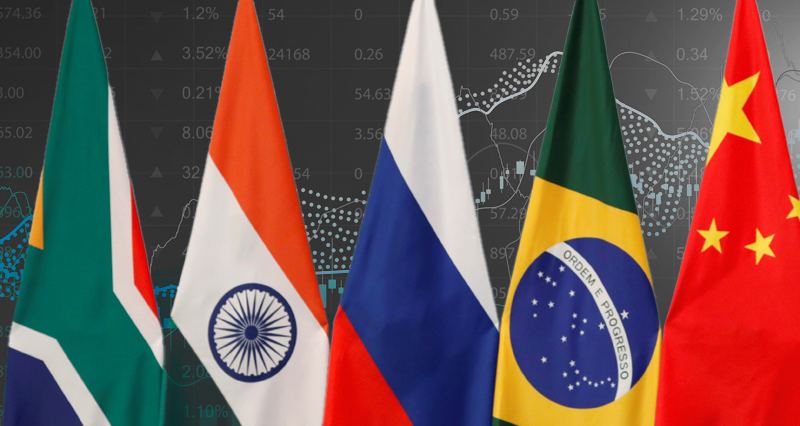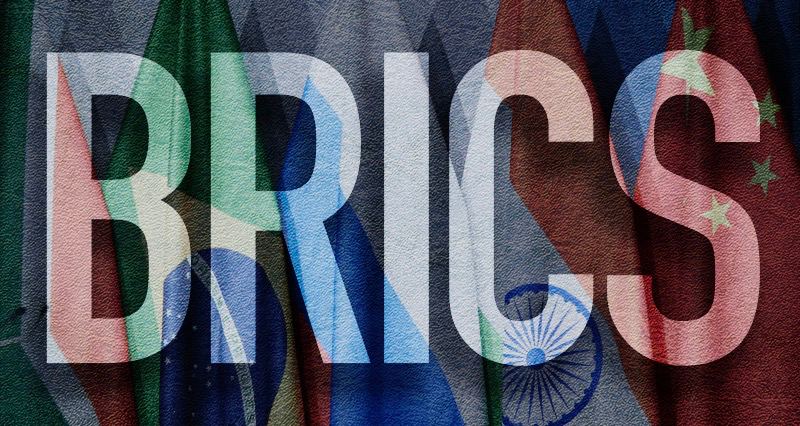By Sergio Rodriguez Gelfenstein The upcoming BRICS summit, to be held in Kazan, Russia in October, has aroused great interest in the public opinion, especially since it will take place just a few days before the presidential elections in the United States. It is unquestionable that this event will mark an important part of the international agenda in the near ...
The Turkish political scientist Umur Tugay Yücel published recently a book titled “The decline of US power and rising new powers”. Herein, he discusses the new global balance of power. According to Yücel, the US power is in decline, being replaced by other nations. This opens a new era in world politics. Naming China, Russia and India among the rising ...
This year, the fourteenth BRICS summit will be held in the Russian city of Kazan on October 22-24. Russia is chairing the organization this year and has invested a lot of effort into increasing the potential of BRICS and making the platform a place for uniting countries seeking sovereignty. The main theme of the upcoming summit will be building up ...
By Tehran Tapdigov, Baku, Azerbaijan Russian President Vladimir Putin, who visited Azerbaijan on August 18-19, discussed many issues of the region with Azerbaijani leader Ilham Aliyev. Many intergovernmental documents were signed. After the meeting, Azerbaijan submitted an application to the organization for membership in BRICS. The fact that the Russian leader invited Aliyev to the next BRICS summit, to be ...
On June 21, 2024, the Association of Cities and Municipalities of the BRICS Countries was established in Kazan city in Russia. The founding meeting took place the day after the closing ceremony of the 2024 BRICS Games in Kazan, where more than 80 countries took part. The initiator of the Association meeting was the Mayor of Kazan, Ilsur Metshin. The ...
Some claim that the phrase “May you live in unusual times” is a Chinese malediction. Some say that the original Chinese saying is, “better to be a dog in times of tranquility than a human in times of chaos.” Let’s leave the truth to the linguists. Trump’s ear and maledictions What is left to us is to live in times ...
We have long emphasized that the center of the global economy is shifting from the Atlantic to the Pacific. Western economists also admit this. Most recently, the International Monetary Fund (IMF) has acknowledged that Asian countries are the main driving force of the global economy, while pointing to the decline of the US economy. The US is in decline According ...
By Orçun Göktürk / Beijing, China The emergence of a more equitable multipolar world order, where power is distributed among many leading states rather than dominated by a single hegemon, offers significant opportunities for Türkiye. The transition away from a Western-centered paradigm towards an integrated Eurasian identity is the most important option for Turkish foreign policy. Since the second half ...
On June 21, the founding meeting of a new organization, the Association of Cities and Municipalities of the BRICS+ countries, took place in the Russian city of Kazan. The meeting of the new body was attended by more than 200 mayors, vice-mayors and leaders of associations of municipalities of the BRICS states and cooperating countries: Russia, China, India, South Africa, ...
By Islam FaragOn August 15, 1971, US President Richard Nixon gave a television speech in which he announced the cancellation of direct international conversion from the dollar to gold. This move effectively led to the collapse of the Bretton Woods international monetary system established after World War II, under which the US dollar was convertible into gold at a rate ...
By Umur Tugay Yücel / Political Scientist BRICS is the most democratic, most egalitarian, most tolerant civilization and civilization project of the 21st century. Defining only an economic and commercial center for BRICS is missing. BRICS is an economic and commercial player as well as an unquestionably cultural actor. Because the BRICS structure is a global ocean of civilization and ...
Evidence found by archaeologists and other specialists in Western Asia shows that as far back as three millennia ago there were ties of friendship, as well as alliances and commitments to establish limits, mutual defense agreements and cooperation mechanisms between Sumerians, Egyptians, and Babylonians, Assyrians and Medea. Likewise, it is known that in Asia, Africa and America, as well as ...







